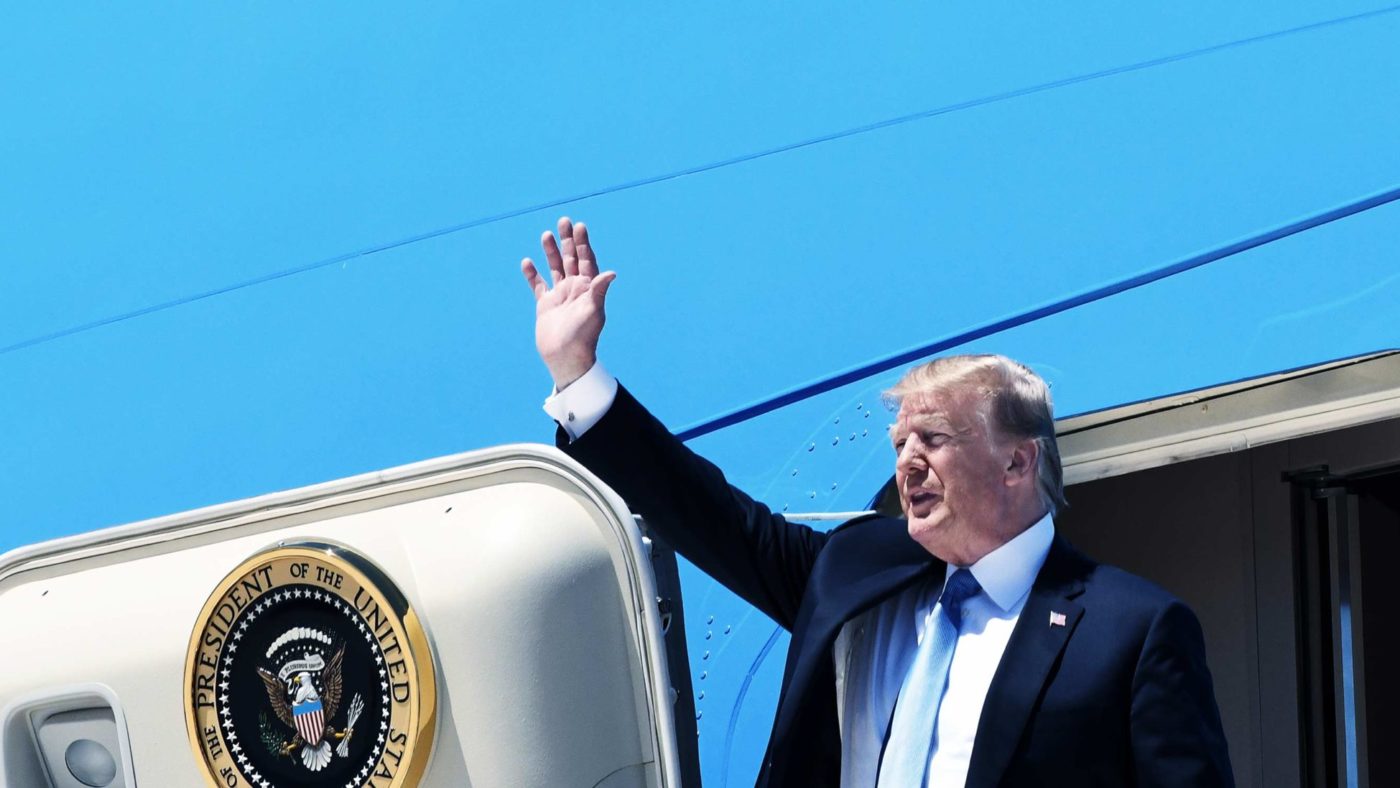Ahead of Donald Trump’s visit to the UK, Shanker Singham imagines what a less erratic, more serious-minded version of the US President might say if he wanted a trade deal between Britain and America.
I am extremely pleased to be here in the United Kingdom, a country with which America shares so many values, including commitment to the rule of law, to the protection of property rights, of free peoples trading in free markets and trading freely around the world.
I believe that wealth can be created or destroyed. I believe it is more difficult to create than it is to destroy. And I believe that competition is the greatest force mankind has ever known to create it. Competition means free people competing based on the quality of their ideas and their capacity for hard work, and not on cronyism or their ability to get a law or regulation that hurts their competitors. Competition has lifted billions out of poverty, created innovative ideas and turned them into companies that employ hundreds of thousands of people. Cronyism, protectionism and over-regulation have enervated mankind’s spirit, destroying wealth and pushing people deeper and deeper into poverty.
Many people call me a protectionist. I am not a protectionist. My trade policy is derived from my belief that for free trade to work, internal markets must actually be free in the countries we trade with.
We live in a world where behind the border barriers and market distortions affect trade, and to naively believe that free trade is only about what happens at borders is to misunderstand the global reality. Distortions behind the border are bad, not only for our producers, but they are bad for the global supply chains in which they operate.
The UK has much to gain from a deal with the US.
We have a common financial services system which would benefit from a reduction of barriers in both directions. The quadrillion dollar clearing market is underpinned by a joint UK-US regulatory framework already. And I need not tell you that American farmers will not accept oversight of the euroclearing market by the ECB and European regulators in the administration of their futures and options contracts.
We have a common defence approach, and multinational defence companies that would benefit if the UK was part of a common defence area; because of our mutual trust, we could have a more open and friendly approach with the respect to US sanctions and export control requirements.
The US needs trade partners like the UK. There is no deficit arising from market distortions, and where the agreement will not lead to offshoring of US jobs or a regulatory race to the bottom.
Many of our advanced manufacturing sectors such as high tech, biotechnology, pharmaceutical and others are really global in nature. These industries want a world where their intellectual property is protected, and regulations and not unduly burdensome and anti-competitive. For these sectors, the EU is moving in the wrong direction.
Together we can roll back the tide of anti-competitive market distortions which threaten the world. But we need a common approach to these challenges, and we believe the UK is a partner in a way that the EU cannot be. EU trade policies have harmed both the UK and the US, which is no doubt why you felt it was necessary to leave the EU, a decision which we respect. To the extent this allows you to be a player in the world, we welcome you, and expect you to play a major role. But if you lock in to the European regulatory system so that we would have to talk to Brussels about regulation that affects your country, then you would quickly become irrelevant to us. This would be a tremendous waste, not just for you and for us, but for the world.
We want a trade deal with you and we want it to mean something for both of our economies. We want it to be open accession so that we can agree the highest standard agreement and then others can join it if they are able.
We are at a moment where there is a huge premium on growth, and a need to eliminate barriers in our global supply chains so that our economies can create the jobs of the 21st century. They will be needed because of the impact of AI and demography on job losses as well as pressure on our social security arrangements as the population ages. Growth will only come if we tackle barriers to growth, especially those behind the border that we find in China and to some extent in the EU. By working together, Britain and America can take the lead in this quest for prosperity.


